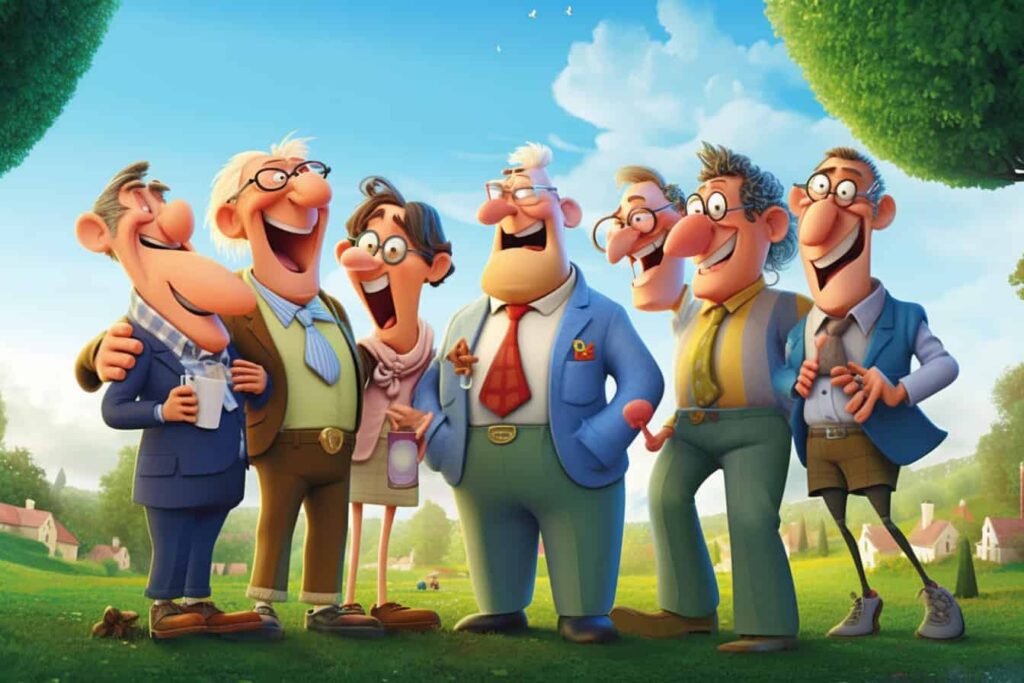In every culture, humor plays a vital role in bringing people together and brightening our lives. This article dives deep into the fascinating world of “chistes” (jokes), exploring their types, cultural impact, and how humor enriches our daily experiences.
What are Chistes?
“Chistes” refer to jokes or humorous anecdotes shared to provoke laughter and amusement. They range from simple puns to elaborate narratives, crafted to entertain and uplift.
The Importance of Humor in Everyday Life
Humor is more than just entertainment; it serves as a powerful tool for social bonding and emotional well-being. Laughter is known to have profound psychological benefits.
Psychological Benefits of Laughter
Stress Relief
Laughing reduces stress hormones and triggers the release of endorphins, promoting relaxation and overall well-being.
Mood Enhancement
Humor boosts mood by stimulating the brain’s reward system, leading to feelings of happiness and positivity.
Different Types of Chistes
Humor manifests in various forms, catering to diverse tastes and preferences:
Puns and Wordplay
Puns play with language, creating humorous connections between words or phrases.
Observational Humor
Observational humor finds comedy in everyday situations and human behavior, offering witty insights into common experiences.
Situational Comedy
Situational comedy derives humor from specific contexts or scenarios, often highlighting the absurdity of circumstances.
Cultural Influence on Chistes
Chistes reflect cultural values, traditions, and perspectives, shaping how humor is expressed and understood globally.
Popular Chistes Around the World
From slapstick in Western comedy to wordplay in Asian humor, cultural nuances influence the style and reception of jokes worldwide.
How to Tell a Good Chiste
Crafting a successful joke involves understanding key elements that resonate with audiences:
Elements of a Successful Joke
Timing, relevance, and delivery are crucial in eliciting laughter and engaging listeners effectively.
The Art of Timing in Chistes
Mastering comedic timing involves knowing when to deliver punchlines for maximum impact, creating anticipation and surprise.
Chistes in Media and Entertainment
Humor pervades various forms of media, enriching entertainment and storytelling:
Stand-Up Comedy
Stand-up comedians excel in delivering chistes live, using personal anecdotes and social commentary to entertain audiences.
Television Shows and Movies
Comedic genres in film and TV leverage chistes to entertain viewers, ranging from sitcoms to satirical comedies.
Humor as a Universal Language
Despite cultural differences, humor transcends barriers, fostering connections and shared laughter across diverse communities.
Impact of Social Media on Chistes
Social media platforms amplify the reach of jokes, allowing jokes to spread virally and contribute to online humor culture.
Ethics and Sensitivity in Humor
While humor is powerful, it’s essential to consider context and audience sensibilities to avoid offense or misunderstanding.
Conclusion
In conclusion, chistes enrich our lives by offering laughter, fostering connections, and reflecting cultural diversity. Embrace humor as a universal language that uplifts spirits and brings joy to people worldwide.
FAQs About Chistes
1. Why are chistes important in different cultures?
Chistes serve as cultural expressions of humor, reflecting societal values and promoting social cohesion.
2. How can I improve my sense of humor?
Engage in activities that make you laugh, explore different types of comedy, and practice sharing jokes with friends.
3. What makes a joke universally funny?
Universally funny jokes often rely on shared experiences, clever wordplay, and unexpected twists.
4. Are there cultural differences in humor styles?
Yes, humor varies across cultures, influenced by history, traditions, and social norms.
5. Is humor beneficial for mental health?
Yes, laughter and humor promote emotional well-being, reduce stress, and enhance overall quality of life.

